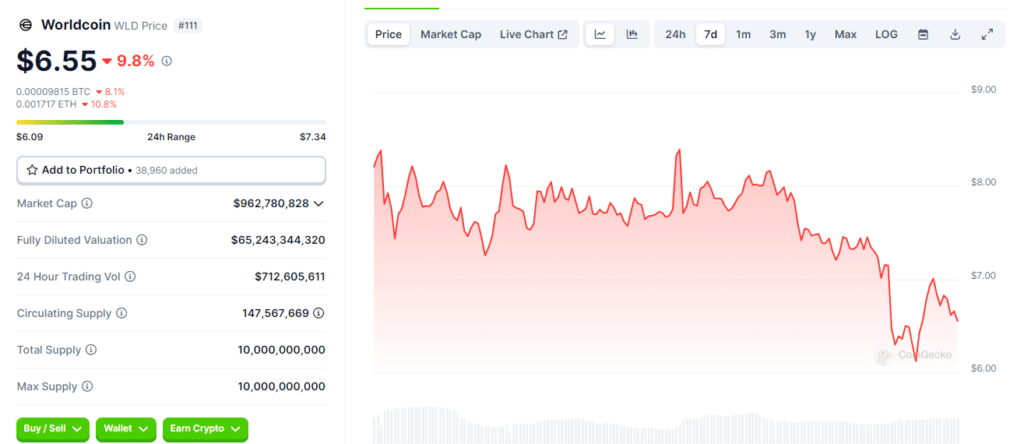Spain has blocked OpenAI CEO Sam Altman’s Worldcoin by halting its data collection process involving iris scanning.
The Spanish data protection authority, AEPD, has instructed Worldcoin (WLD) to cease collecting personal data through eye scans and use already collected data in Spain.
Earlier today, South Korean regulators also issued a press release announcing they had begun investigating Worldcoin over complaints of privacy concerns.
The AEPD made this decision public, emphasizing it as a preventive step to safeguard Spanish citizens, particularly minors, from potential privacy invasions. The announcement marks Spain as the first European nation to challenge Worldcoin’s operations, underscoring the need for a collective European response given the project’s implications for EU citizens.
Following the news, Worldcoin’s price plummeted nearly 10%. However, the token is still up almost 200% in a month. WLD started rallying earlier in February, along with other major AI coins, following the launch of OpenAI’s text-to-video generation, Sora.

Launched by Altman in 2019, Worldcoin aims to distribute its cryptocurrency in exchange for users agreeing to have their irises scanned by a device known as the orb. The WLD issuer seeks to develop a secure method to verify human identity, distinguishing real users from AI entities as AI technology evolves.
Despite its innovative approach, Worldcoin faces significant regulatory challenges globally. The project is not accessible in major markets like China and India, and it has encountered legal obstacles in Kenya, where authorities demanded the cessation of its operations.
The UK’s Information Commissioner’s Office has also indicated plans to investigate the project. Spain’s recent actions further complicate Worldcoin’s efforts to establish a new standard for digital identity verification amidst growing global scrutiny over privacy and data protection concerns.
This article first appeared at crypto.news
